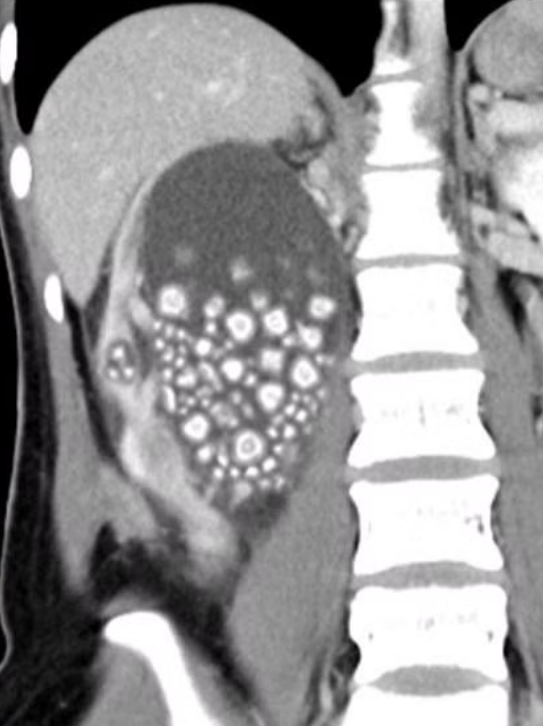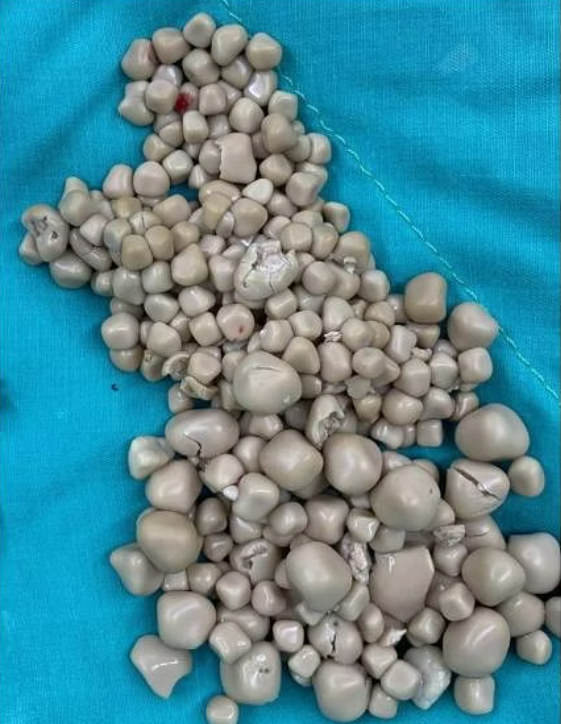Excessive Bubble Tea Leads to 300 Kidney Stones in Young Woman
Doesn’t bubble tea look tantalisingly refreshing, especially in the sweltering heat of Singapore’s climate?
In Singapore, the craze for bubble tea has reached such heights that, despite being the smallest nation in Southeast Asia, it ranks fourth in the largest market sizes for the bubble tea industry, according to a recent study.
But what if you indulge in too much bubble tea?
This is no longer just a cautionary tale from Asian parents; excessive consumption of bubble tea can indeed lead to serious health issues, such as kidney stones.
A startling case emerged in Taiwan, where a 20-year-old woman was admitted to the hospital experiencing severe back pain and fever.
Astonishingly, doctors found over 300 stones in her kidneys.

Kidney stones, hard objects formed from chemicals in urine, can cause excruciating lower back pain, bloody urine, nausea, vomiting, and even fever with chills.
Typically, kidney stones are counted individually, not by the hundreds.

Through ultrasound, doctors discovered the young woman, Xiao Yu, had a swollen right kidney filled with stones.
A CT scan revealed these stones varied in size from 5 mm to 2 cm, which are considered medium-sized.
It’s hard to imagine, but she had 300 of these medium-sized stones. That’s a lot.
Her blood tests indicated an elevated white blood cell count, signifying infection.
The medical team proceeded with surgery to remove these stones, which, due to their size, were likened to “small steamed buns”.
Maybe if they were smaller, they’d resemble the pearls in bubble tea.

The doctors administered antibiotics, drained fluid from her kidney, and conducted minimally invasive surgery to extract the numerous stones.
Dr Lim Chye-yang, a urologist at the hospital, noted that kidney stone cases tend to spike in spring and summer, attributing this to dehydration from hotter weather.
Dehydration leads to more concentrated urine, which in turn causes minerals to combine and crystallise into stones.
But what led to such an extreme accumulation of kidney stones in this young woman?
The primary cause was her aversion to drinking water, leading her to substitute it with bubble tea.
Other factors contributing to kidney stone formation include genetics, chronic diseases, and diets rich in calcium and protein.
Dr Lim shared that in Taiwan, about 9.6% of people may develop kidney stones in their lifetime, with men being over three times more likely to develop them than women, as reported by The Straits Times.
Despite the severity of her condition, the 20-year-old’s health stabilized post-operation, and she was discharged after several days of observation.
This case serves as a stark reminder of the potential health risks associated with excessive bubble tea consumption and the importance of a balanced diet and adequate water intake.
Watch this video to find out more about bubble tea:




